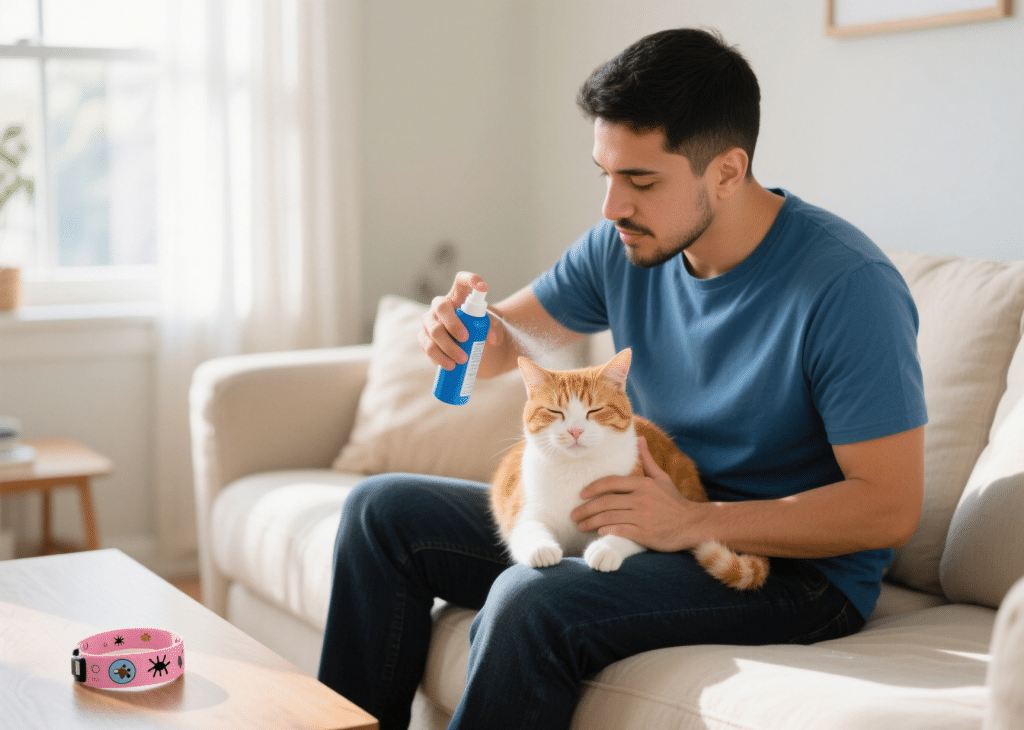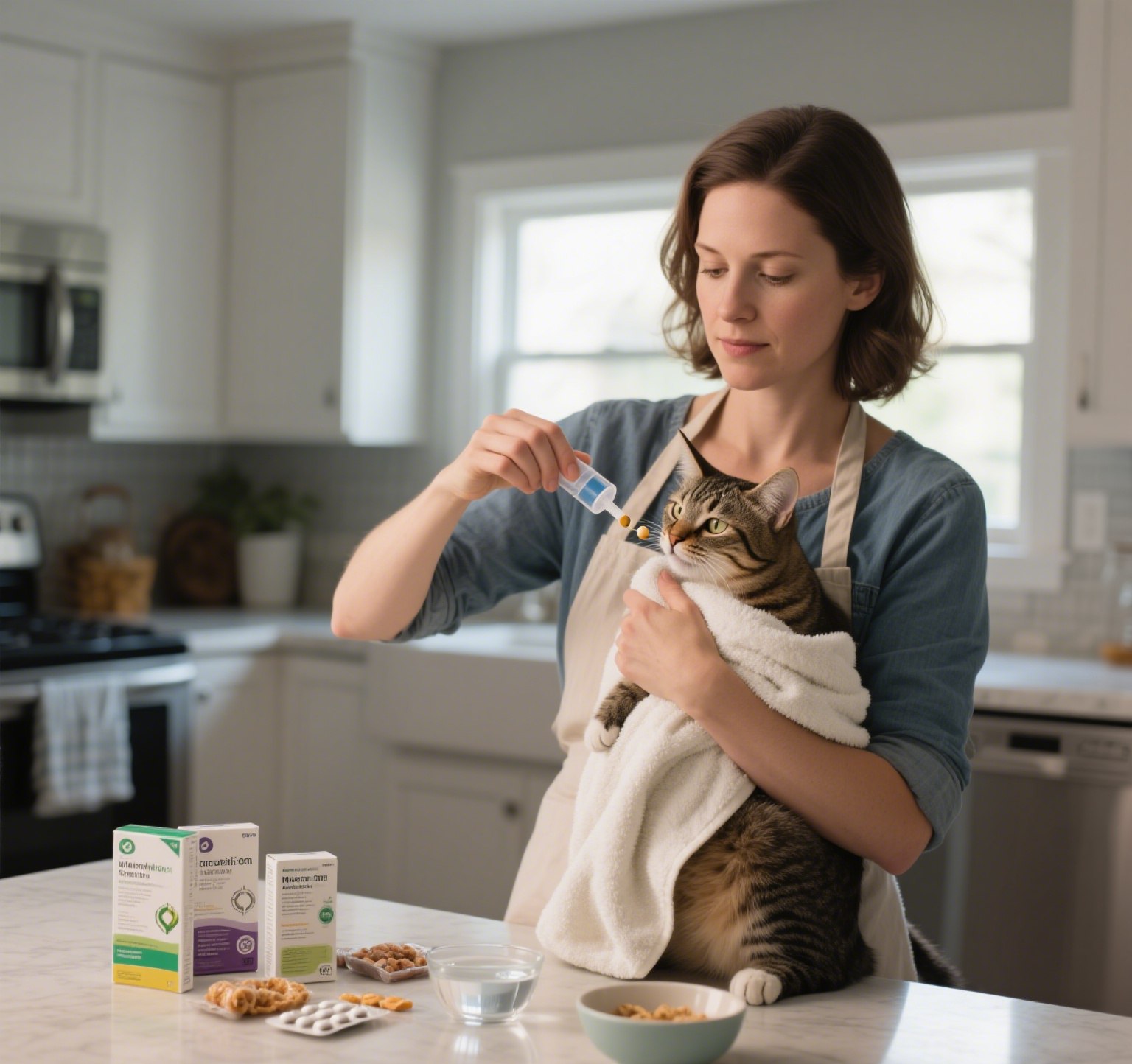How to Deworm a Dog with Heartworm Prevention Medications
Introduction
Combining heartworm prevention and intestinal parasite control in a single medication simplifies canine parasite regimens and improves compliance. Many modern heartworm preventives contain active ingredients that also target roundworms, hookworms, and whipworms. This article explains how to effectively deworm your dog using these combination products.
1. Understanding Combination Medications
Milbemycin Oxime (Interceptor®)
Coverage: Prevents heartworm disease (Dirofilaria immitis) and deworms roundworms, hookworms, and whipworms.
Dosage: 0.5 mg/kg orally once monthly.
Age Recommendation: Approved for dogs 4 weeks or older weighing at least 2 lbs.
Ivermectin/Pyrantel (Heartgard® Plus)
Coverage: Prevents heartworm disease and deworms roundworms and hookworms; does not target whipworms or tapeworms.
Dosage: 6 μg/kg ivermectin + 5 mg/kg pyrantel pamoate orally once monthly.
Age Recommendation: Dogs 6 weeks or older and weighing 2–4 lbs or more.
Moxidectin/Imidacloprid (Advantage Multi®)
Coverage: Prevents heartworms, rounds, hooks, whipworms, sarcoptic mange; topical application.
Dosage: 2.5–6.25 mg/kg moxidectin and 10–25 mg/kg imidacloprid, topically once monthly.
Age Recommendation: Dogs 7 weeks or older and weighing at least 2 lbs.
2. Initiating a Combined Regimen
Baseline Testing:
Perform a heartworm antigen test and fecal float before starting any combination preventive.
Confirm negative heartworm status and identify existing parasites requiring immediate treatment.
First Dose Administration:
Follow product-specific guidelines for administration (oral chewable or topical).
Provide with or after a meal to improve absorption and reduce gastrointestinal upset.
Scheduling:
Choose a consistent date each month to maintain routine (e.g., the first day of every month).
Record doses in a calendar or app with reminders to avoid missed treatments.
3. Monitoring and Follow-Up
Quarterly Fecal Exams:
Even with combination products, fecal floats every 3 months help detect resistant or non-covered parasites (e.g., tapeworms).
Add praziquantel if tapeworms are identified, as most combination preventives do not cover them.
Annual Heartworm Testing:
Conduct a heartworm antigen test 6 months after starting preventives, then yearly.
Ensures early detection in case of preventive failure.
Physical Examinations:
Monitor weight, coat condition, and overall health during annual wellness visits.
Adjust doses promptly if weight changes occur.
4. Addressing Special Cases
Puppies and Kittens:
Minimum age and weight guidelines must be followed to prevent overdose.
Some combination products (e.g., Interceptor®) are approved for puppies as young as 4 weeks; confirm with your veterinarian.
Senior and Immunocompromised Dogs:
Perform blood work to assess kidney and liver function before initiating any preventive containing macrocyclic lactones (e.g., ivermectin, moxidectin).
Adjust dosage or select alternative products if contraindicated.
Multiple Dogs in Household:
Ensure all dogs receive combination preventives to minimize parasite reservoirs.
Maintain strict environmental hygiene—clean yards and kennels to reduce reinfection.
5. Cost and Compliance Benefits
Simplified Regimen:
Single product covers multiple parasites, reducing the number of medications needed.
Increases owner compliance and decreases the chance of missed doses.
Cost Analysis:
Combination products often cost more per dose than single-purpose dewormers but save money by eliminating additional prescriptions.
Look for bulk purchase discounts or veterinary coupon programs.
Conclusion
Using heartworm prevention medications with deworming properties—such as Interceptor®, Heartgard® Plus, or Advantage Multi®—offers streamlined, comprehensive parasite control. Begin with baseline testing, follow scheduled dosing, and continue periodic fecal and heartworm evaluations to ensure your dog remains protected against both heartworm disease and intestinal parasites.
Explore Dogs

Cost-Effective Deworming Options for Large Breed Dogs
IntroductionLarge breed dogs (over 50 lbs) require higher medication dosages, which can increase tre...
Read More
Best Dog Dewormers for Puppies: A Vet-Recommended Guide
IntroductionPuppies are particularly vulnerable to intestinal parasites—roundworms, hookworms, and...
Read More
Can a Cat Go Outside After Deworming? Recovery and Risk Guide
Can a Cat Go Outside After Deworming? Recovery and Risk GuideDeworming is vital for your cat’s hea...
Read More
Why Is My Cat Drooling After Deworming? Causes and Care Tips
Why Is My Cat Drooling After Deworming? Causes and Care TipsNoticing your cat drooling after adminis...
Read More
How to Deworm a Multi-Cat Household Without Spreading Parasites
How to Deworm a Multi-Cat Household Without Spreading ParasitesIntroductionDeworming a multi-cat hou...
Read More
Deworming Cats Externally: Spot-On Treatments vs Collars vs Sprays
Deworming Cats Externally: Spot-On Treatments vs Collars vs SpraysIntroductionExternal parasites suc...
Read More
Is Vomiting or Diarrhea After Deworming Normal for Cats?
Is Vomiting or Diarrhea After Deworming Normal for Cats?IntroductionDeworming is an essential compon...
Read More
How to Give Deworming Medication to Your Cat Without a Struggle
How to Give Deworming Medication to Your Cat Without a StruggleAdministering deworming medication to...
Read More
Vet-Approved Deworming Schedules for Cats: What Every Owner Should Know
IntroductionEffective parasite control is essential for maintaining feline health. Veterinarians rec...
Read More